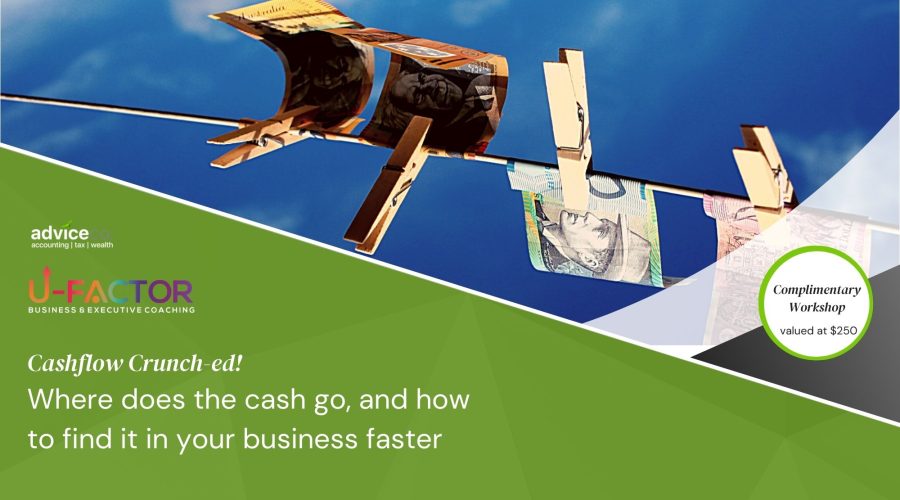Beware Division 7A when borrowing from your business Posted on October 9, 2018

What is Division 7A?
Division 7A exists as an integrity measure, and deals with benefits such as payments, loans, or even debt forgiveness made by private companies. The Division 7A law prevents private companies making tax-free profit distributions to shareholders (and their associates).
Such transactions can include:
-
amounts paid by a private company to a shareholder (or associate), including transfers or uses of property for less than market value
-
amounts lent to the same without a specific loan agreement constructed in conformity with prescribed legislative requirements (unless the relevant loans were fully re-paid by lodgement day)
-
debts that the business forgives.
Through applying the Division 7A rules, such loans, debt forgiveness or other payments are treated as assessable unfranked dividends to the shareholder (or associate), and taxed accordingly in their hands.
Who does it apply to?
“Private companies” are covered by Division 7A. The rules thereby apply to the shareholder of such companies (typically, the principals of the business) and their “associates”. This last term is widely defined and can include family members and related entities. Employees may be affected if they are shareholders (although fringe benefits rules may also apply in preference).
If you find yourself in circumstances where there is a possibility of Division 7A provisions applying, and the tax consequences that go along with it, consult this office.
What commonly triggers Division 7A?
Most commonly, Division 7A applies where there is a loan by the company to the business owners (that is, shareholders). A loan will generally be treated as a dividend if a company lends money to a shareholder (or associate) in an income year and the loan is not fully repaid by the lodgement day of the same income year.
Another example, which is not all that uncommon, is where an asset of the company is made available for use of the shareholders – a holiday house owned by the company is a typical example. Where shareholders of the private company use that holiday house for free over a certain period, this will likely trigger Division 7A as a “payment” , as this use is viewed as having a commercial value. That value is deemed to be a distribution to shareholders that would otherwise be tax-free were it not for the Division 7A provisions.
What can be the consequences?
Any loans, payments and debt forgiveness from the business to its shareholders (or associates) may be deemed to be an assessable dividend that should be taxed in the hands of the shareholder (or their associates) typically at their marginal tax rate, under the Division 7A rules. The dividend is “unfranked” meaning that there are no franking credits available to the recipient (unless the Commissioner exercises his discretion to the contrary).
But one important aspect of Division 7A, broadly speaking, is that there needs to be “profits” from which the business can make payments. This is referred to as a “distributable surplus”.
In general terms, provided there is a sufficient distributable surplus in the company, all payments made by a private company to a shareholder (or their associate) to which Division 7A applies are treated as dividends at the end of the income year.
Can you avoid the adverse effect of Division 7A?
To avoid the Division 7A provisions, such transactions must be arranged correctly and at “arm’s length”. In particular there are certain payments, loans and debt forgiveness that are not always treated as dividends.
Payments not always treated as dividends include:
-
repayment of a genuine debt owed to a shareholder
-
a payment to a company (not acting as trustee)
-
any payment that is otherwise assessable for tax
-
a payment made to a shareholder in the capacity of an employee (including their associates)
-
a liquidator’s distribution.
The following loans are not treated as dividends:
-
a loan fully repaid within an income year
-
loan to a company (if it is not acting as a trustee)
-
loans made “in the ordinary course of business” on commercial terms
-
a loan made to buy shares or rights under an employee share scheme
-
any loan that is otherwise assessable for tax
-
a loan that is put under a special type of loan agreement called a “Division 7A loan agreement” before the lodgement day of the company’s tax return
-
other types of loans that meet the definition of “excluded loans” for Division 7A
And not all debts that are forgiven end up being treated as dividends, such as:
-
where the debtor is a company
-
if the debt is forgiven because the shareholder becomes bankrupt
-
where the loan that created the debt is itself treated as a dividend
-
if the Tax Commissioner exercises discretion due to being satisfied that the shareholder would otherwise suffer undue hardship.
Borrowing money from a private company, even if it is your own business, can have serious pitfalls if not carried out correctly. It may be necessary to put in place a Division 7A loan agreement. Contact us for more information should you find yourself in such circumstances.





